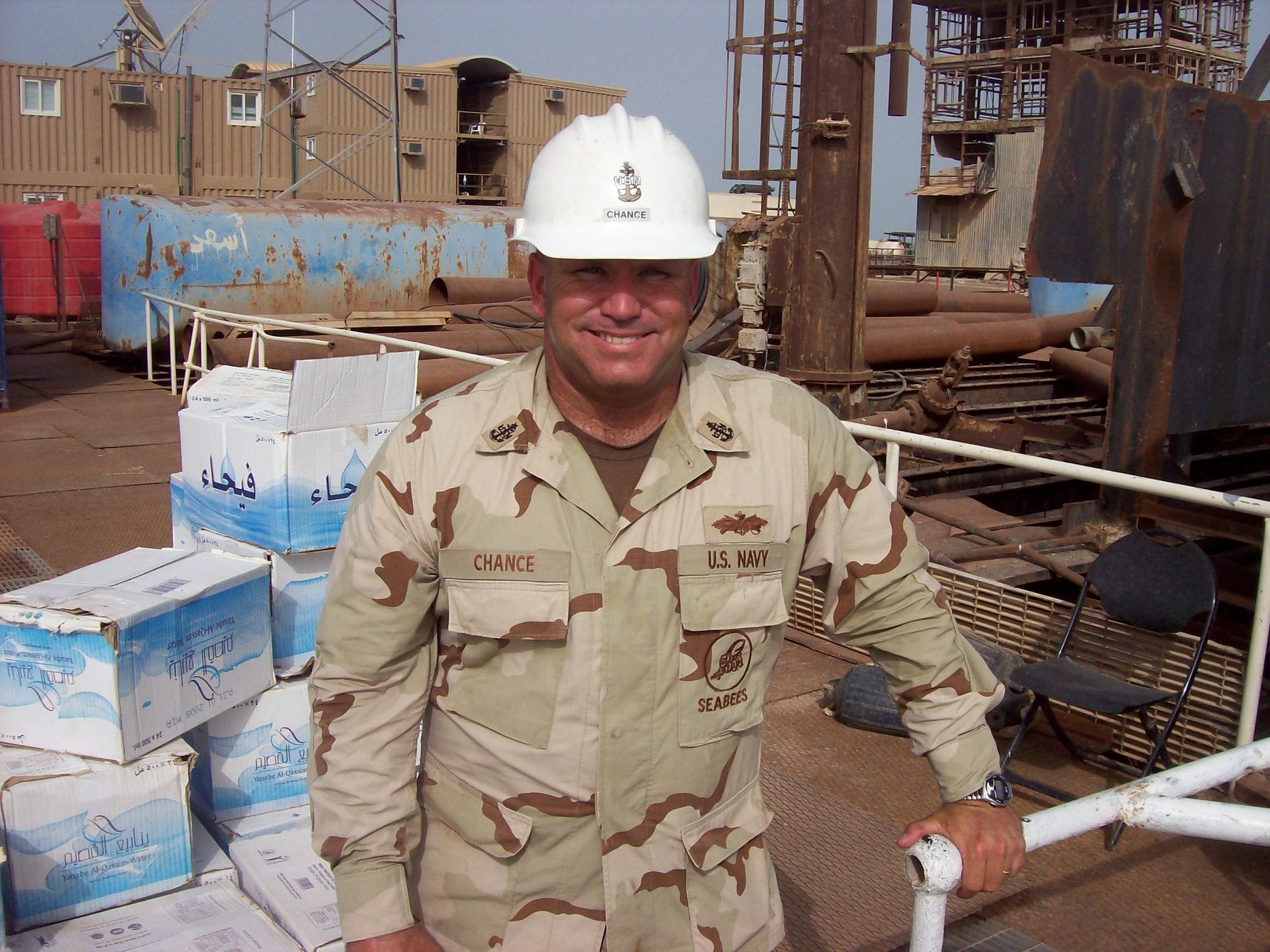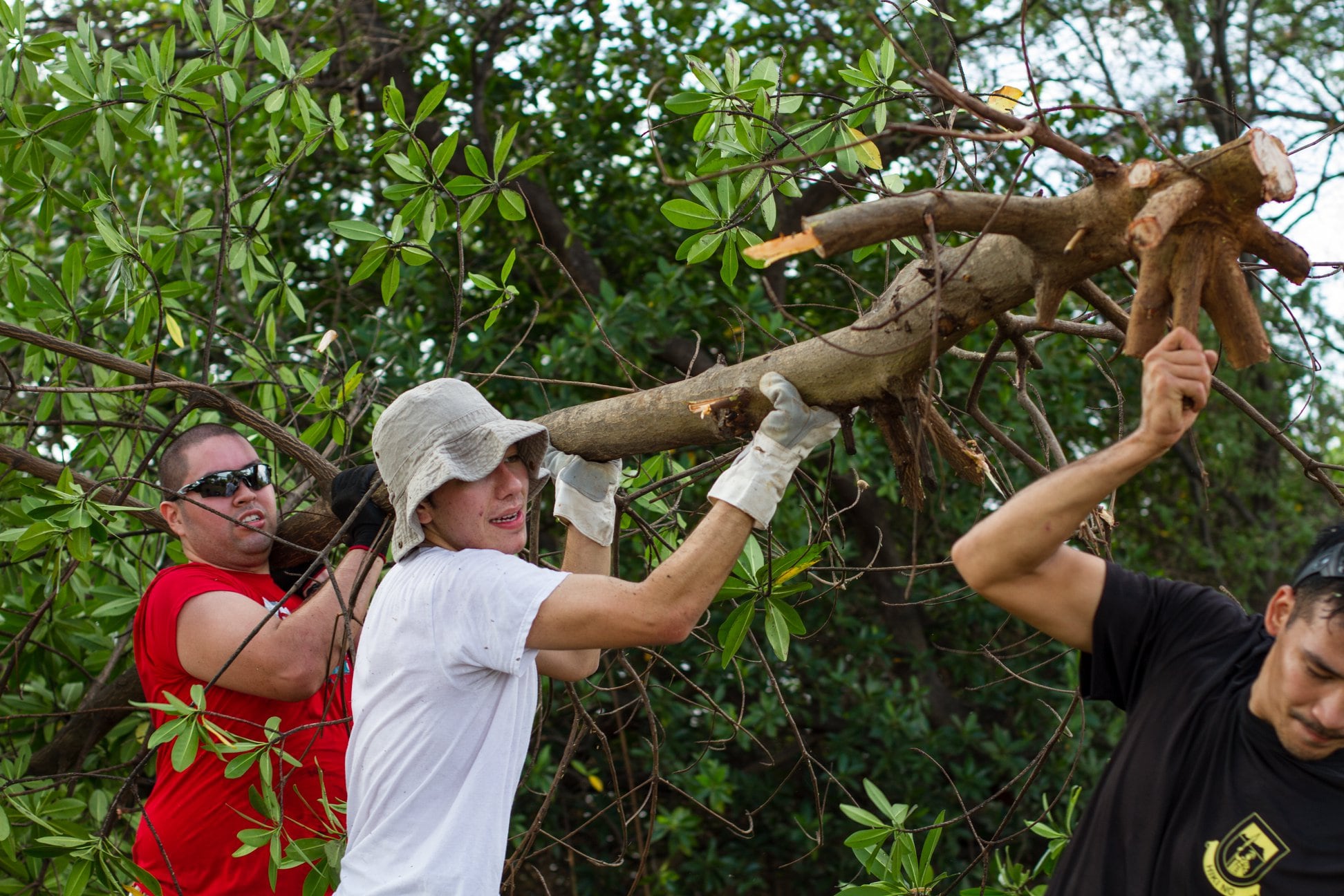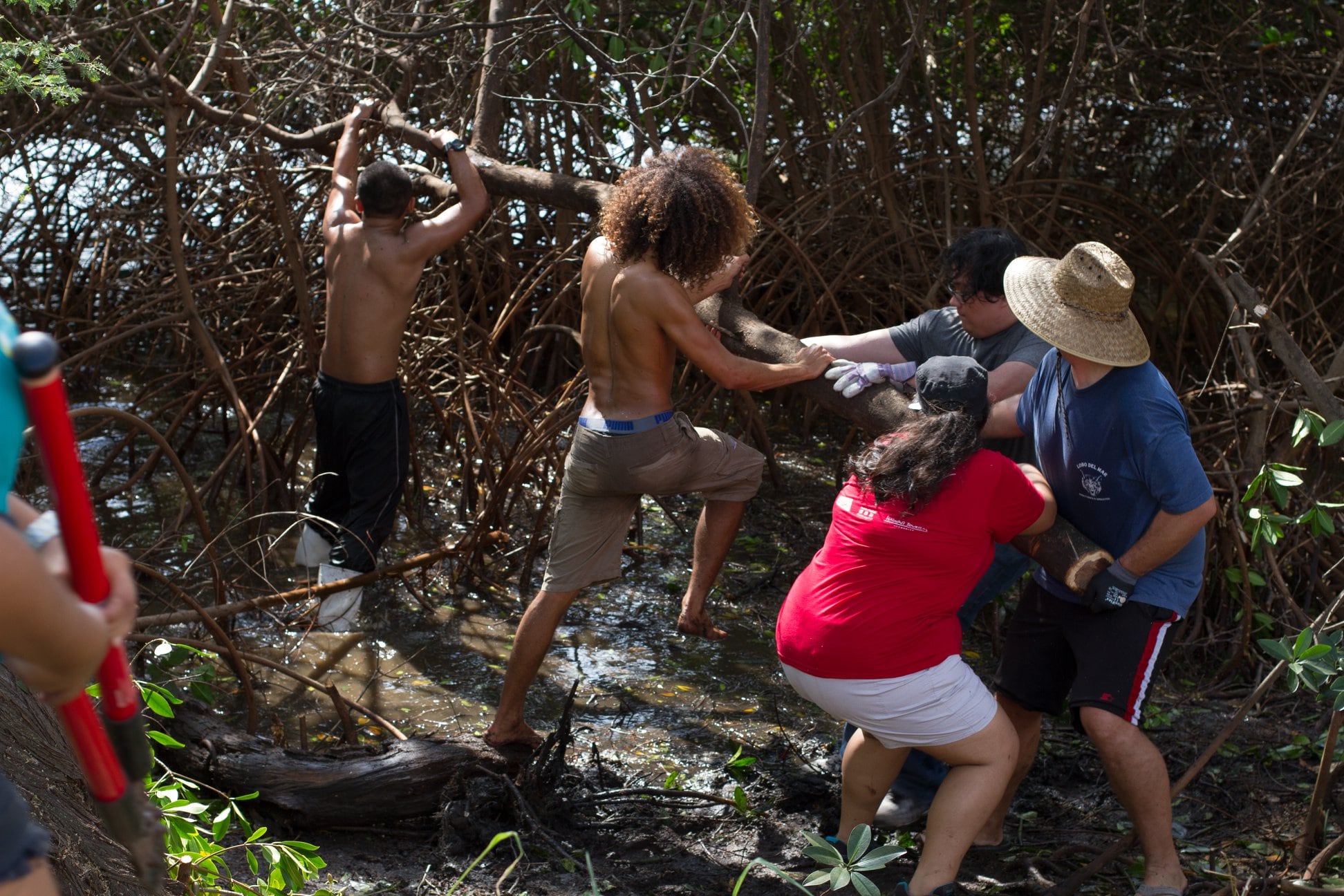Tony Chance was walking his dogs along the garbage-lined shoreline of Pu`uloa, HI, or what’s now known as Pearl Harbor, when he thought to himself, “who’s going to clean this up?” six years ago.
Chance, 55, who was working on his bachelor’s degree at the time, couldn’t reconcile how the country had let such an important site — both environmentally and historically — fall into such neglect. Pollution, invasive plants, and sediment have overtaken the once pristine waters, so much so that the Environmental Protection Agency has enacted a fish advisory to prevent people from eating fish caught in the area since 1998.
A retired Navy Seabee senior chief, Chance credits his 21 years in the Construction Battalions with first putting him in the headspace of how to give back to his community. But it was after retirement, during a university trip, that Chance asked Hawaii State Legislature Representative Ty Cullen if anyone was going to do anything about the state of the shore, a once thriving ecosystem turned superfund site.
“Community-led efforts face challenges when getting proper authorization to do cleanups, making it difficult to coordinate on a consistent basis,” Cullen told Military Times.
Chance realized that an earnest cleanup would be next to impossible. And that gave him an idea.
“Being a Seabee, we have a saying: the difficult task we do at once, the impossible takes a bit longer,” Chance said. “It’s not just a mantra. That’s our DNA.”

That’s when Chance decided to start a non-profit organization dedicated to cleaning up Pearl Harbor in April of 2015. At the suggestion of his classmate, Jasmine Choy, Chance named his organization Hui O Ho’Ohonua, a Hawaiian phrase that roughly translates to “a group of people united for a purpose to set the earth right.” Hui O Ho’Ohonua, or HOH808, was officially incorporated as a 501c3 nonprofit that December, and adapted a familiar Seabees mentality as the core of their mission: “Impossible is where we start.”
But once the adrenaline wore off, Chance grew overwhelmed.
The military, along with several other sectors, like agriculture, have all contributed to the negative impact on the local environment and culture. Long before it was the site of the attack that dragged the U.S. into World War II, Hawaii had a fraught history with the mainland. The monarchy was overthrown by a group of Americans in 1893, and annexed by the U.S. two years later.
“How is a non-Hawaiian — a white person — going to start a Hawaiian nonprofit?” Chance asked himself.
During his service as a Seabee, Chance was deployed to several locations to help build essential infrastructure. Thinking back to those experiences, Chance began brainstorming ways in which he could take on this project without steamrolling the local community.
“We Seabees do incredible things all around the world,” Chance said. “When we get to these places, we have to work with the local community.”

After his time in the Navy, Chance struggled with the transition to civilian life. Though he always knew he had wanted the military to be chapter in his life, and not his entire life, it wasn’t until a friend suggested social work that Chance really felt he’d found new purpose. Eventually, he earned his master’s of social work from the University of Hawaii at Manoa. He credits his Seabee experience with giving him all the tools he needed to take on the onerous task of a superfund site cleanup, and his education with the awareness to do it right.
“We (at HOH808) are very sensitive to the fact that we don’t want to be the white saviors or the colonial environmentalists,” Chance said. “We have cultural advisors that everything gets vetted through, and we don’t do anything until they give us the thumbs up.”
The organization’s first cleanup consisted of just Chance and one other person. Eventually, members of the community began showing up to help, and the organization itself grew — all with the shared goal of trying to restore land that had been through occupation, war, and years of pollution.
On HOH808′s website, the organization states its primary mission is to “end the perpetuation of historical trauma to the land, water, and people in the `Ewa Moku on `Oahu.” It’s a daunting goal, but in just a few years the organization has already made a noticeable dent.
“You immediately recognize the impact of their work the moment you enter the park, especially on the invasive mangrove removal, replanting of native fauna, and maintenance on Honouliuli stream that has been done to address the heavy flooding concerns,” Cullen, the state legislator, said of the organization’s impact. “They have brought many members of the community together and ultimately gave the community a sense of pride in the restoration of the area.”
In addition to the ongoing restoration of Pu`uloa’s physical environment, Chance and his organization have spearheaded significant changes to the cultural and political landscape of Pu`uloa and the greater community. With Cullen’s support, Chance has successfully lobbied the state legislature of Hawaii to restore and protect the region’s legacy. In 2017 the West Loch Shoreline Park in Oahu was officially renamed to Kapapapuhi Point Park to honor it’s original Hawaiian name. In 2018, he helped establish Malama Pu’uloa Month, an official state celebration of the cultural, historical, and environmental importance of the Pu’uloa region every fall. This year’s celebration runs through Oct. 31. Though these changes don’t have the visual impact of a cleaner shore or more sparkling water, in many ways they mean even more to the community.

“Tonyʻs impact is on-going,” said Dr. Manulani Aluli Meyer, an associate faculty specialist at the University of Hawaiʻi West Oʻahu. “I appreciated that he helped bring back the Hawaiian name of Kapapaʻapuhi Point, and he is consistent in using the older name for Pearl Harbor, Puʻuloa. He also works to clean, clear and bring awareness to the needs of Puʻuloa in all he does and speaks about. His persistence inspires.”
With his experiences as a combat veteran and his work with homeless veterans in Hawaii, Chance believes the military made him uniquely prepared to take on the enormous task of trying to clean up a superfund site with a complicated history. But he doesn’t think he’s special for it.
“There’s so much untapped resources out there in retirees,” Chance said. “These are all people that have just incredible skill sets that aren’t being used.”
Chance is pushing for HOH808′s continued growth so that Pearl Harbor can return to its pre-colonial glory. In addition to the shoreline restoration project, the group has expanded to maintain other nearby parks and waterways, and pushes several grassroots education programs to teach young community members about everything from the area’s unique ecosystem to the importance of preserving indigenous history.
While he may have found his passion in restoring one specific place, he’s stresses that the core values he learned as a Seabee can apply to almost any problem.
“The things we’re learning here don’t just have an impact on Hawaii or this island,” he said. “This has a global impact. What we learn here can be used anywhere.”





